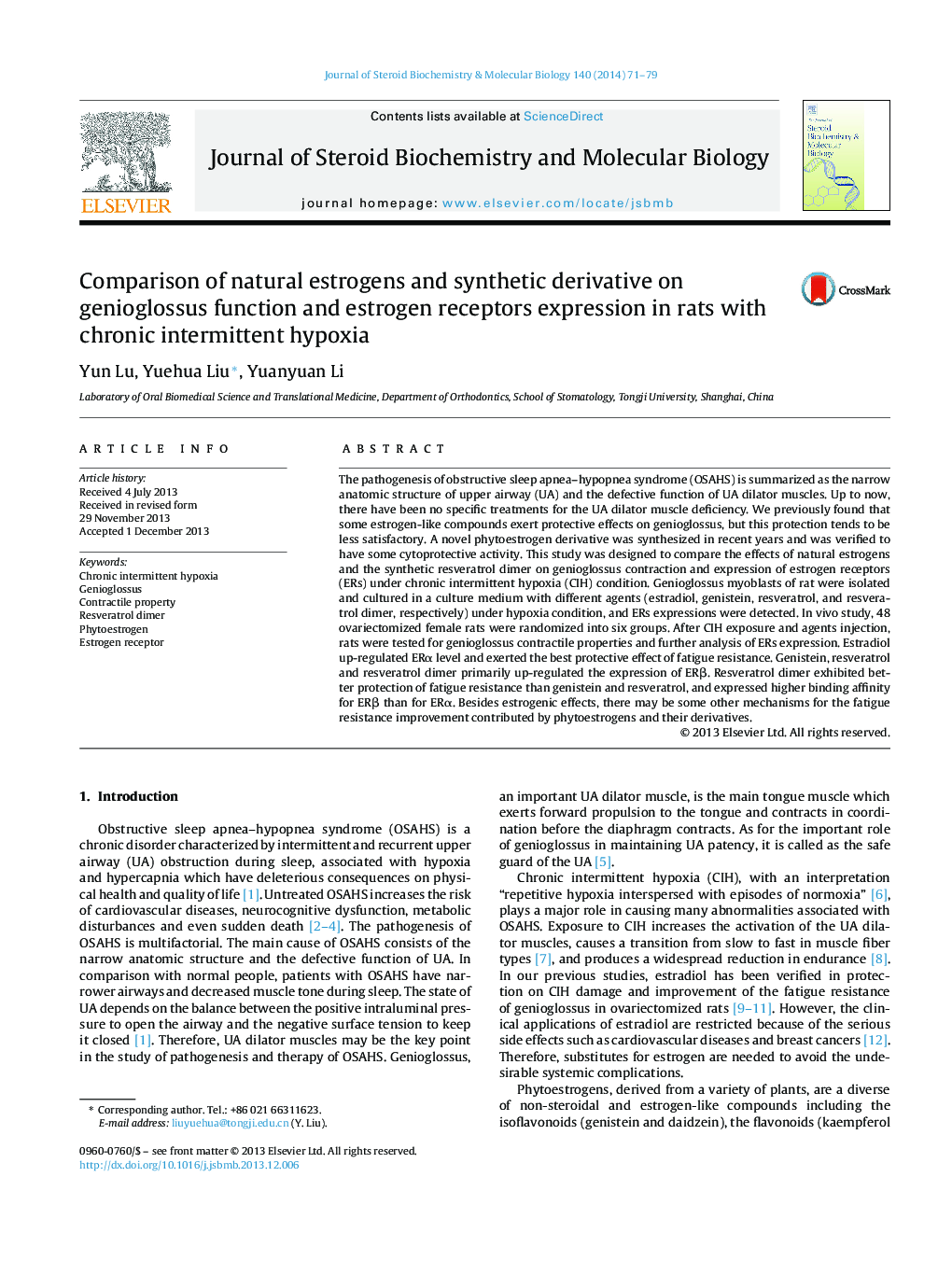| Article ID | Journal | Published Year | Pages | File Type |
|---|---|---|---|---|
| 8338848 | The Journal of Steroid Biochemistry and Molecular Biology | 2014 | 9 Pages |
Abstract
The pathogenesis of obstructive sleep apnea-hypopnea syndrome (OSAHS) is summarized as the narrow anatomic structure of upper airway (UA) and the defective function of UA dilator muscles. Up to now, there have been no specific treatments for the UA dilator muscle deficiency. We previously found that some estrogen-like compounds exert protective effects on genioglossus, but this protection tends to be less satisfactory. A novel phytoestrogen derivative was synthesized in recent years and was verified to have some cytoprotective activity. This study was designed to compare the effects of natural estrogens and the synthetic resveratrol dimer on genioglossus contraction and expression of estrogen receptors (ERs) under chronic intermittent hypoxia (CIH) condition. Genioglossus myoblasts of rat were isolated and cultured in a culture medium with different agents (estradiol, genistein, resveratrol, and resveratrol dimer, respectively) under hypoxia condition, and ERs expressions were detected. In vivo study, 48 ovariectomized female rats were randomized into six groups. After CIH exposure and agents injection, rats were tested for genioglossus contractile properties and further analysis of ERs expression. Estradiol up-regulated ERα level and exerted the best protective effect of fatigue resistance. Genistein, resveratrol and resveratrol dimer primarily up-regulated the expression of ERβ. Resveratrol dimer exhibited better protection of fatigue resistance than genistein and resveratrol, and expressed higher binding affinity for ERβ than for ERα. Besides estrogenic effects, there may be some other mechanisms for the fatigue resistance improvement contributed by phytoestrogens and their derivatives.
Related Topics
Life Sciences
Biochemistry, Genetics and Molecular Biology
Biochemistry
Authors
Yun Lu, Yuehua Liu, Yuanyuan Li,
